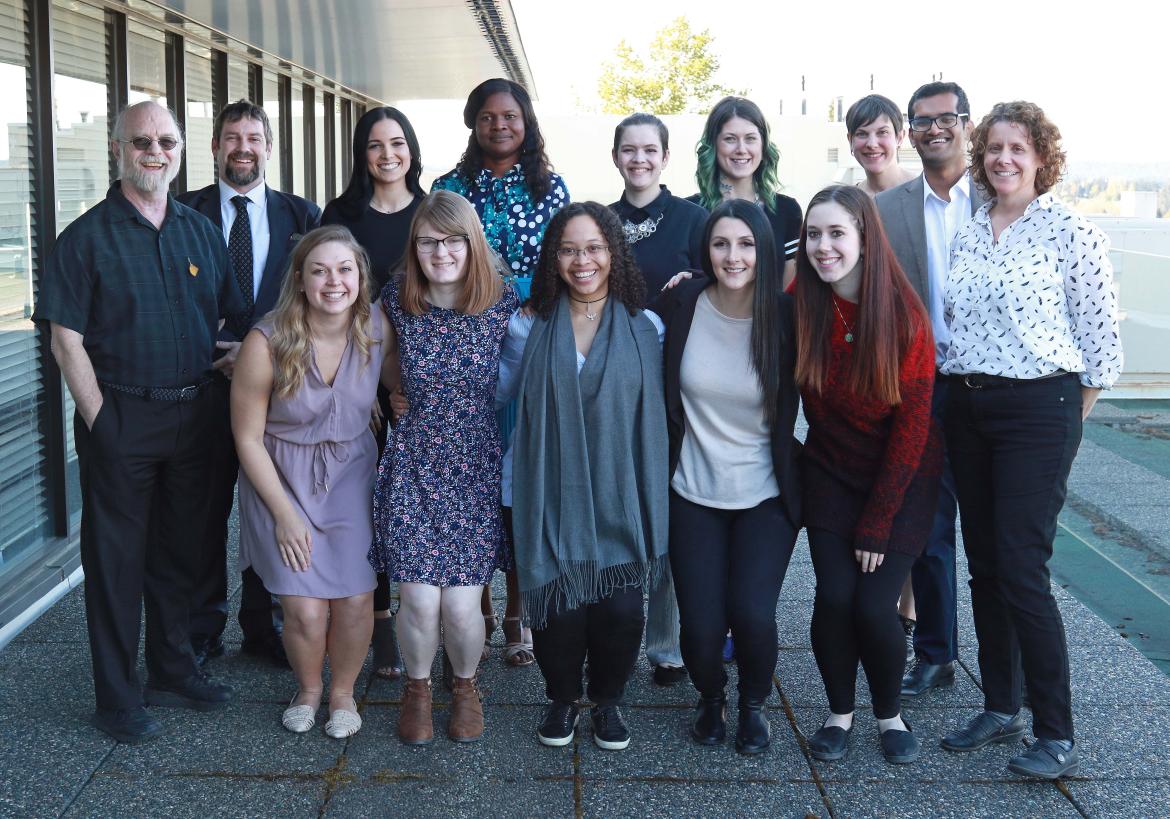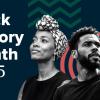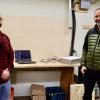
In the Community-Based Applied Interdisciplinary Research program, students learn all aspects of conducting a research project.
July 29, 2019 - 4:45pm
Students in the Community-Based Applied Interdisciplinary Research course delve into issues facing local community groups.
A unique interdisciplinary program that allows Vancouver Island University (VIU) students to design and carry out a research project over eight months is helping community groups solve real-world problems.
From exploring how to increase public awareness of ecoforestry, to researching ways to boost use of a healthy eating program, to determining how a service club can better support community needs, students in the Community-Based Applied Interdisciplinary Research (CBAIR) course are providing community groups with data that supports their mandates while strengthening partnerships and relationships between VIU and the community.
“Students learn all aspects of conducting a research project, like preparing a research question, developing and conducting a survey, analyzing data and writing a report,” says Dr. Sylvie Lafrenière, a VIU Sociology Professor and one of the program’s founders. “They also learn time management, co-operation, problem solving, public speaking, communication skills and,working to people’s strengths, as well as a great deal about the services that are offered in their community and the people who live here."
Students from different disciplines, including sociology, anthropology, criminology and business management, are organized into teams to complete each project, ensuring a range of expertise in each group and strengthening students’ teamwork skills.
“Working with one team for the whole year on a research project was a really good experience,” says Amber Crittenden, a First Nations Studies student who was part of a group evaluating Nanaimo Foodshare’s Good Food Box Program. “Trusting that process was really new for me – once we got started I realized I could rely on my teammates as we worked through it.”
Felicia Fischer, a VIU Media Studies student who was part of the group that explored what services and activities the Ecoforestry Institute Society, which operates the Wildwood Forest in Cedar, could offer to further promote ecoforestry to the public and to professional forestry communities, says the experience was completely different from other courses at VIU.
“It was very interesting dealing with real organizations and getting the opportunity to work with a real client and get feedback,” she says. “We really honed our communication skills through the interviews and other elements of the project.”
One of the 2018-19 research projects analyzed social needs in the community on behalf of the Zonta Club of Nanaimo to help the group better allocate their resources.
“Zonta saw this project as a way to better understand our gaps and strengths, and help shape our future,” says Janice Krall, past president. “Partnering with VIU allowed us access to a professional level and quality of resources that we didn’t have capacity to support or deliver on currently within the club. The program also provided students with a better understanding of some of the challenges community groups face and gave them a chance to be part of possible solutions.”
In their analysis of non-profit groups in Nanaimo, the team found that organizations are most in need of funding for housing, poverty and health initiatives, and top struggles include a lack of reliable, sustainable sources of funding, restrictions on what the money can be used for and the extensive grant application process. The group also determined that despite the fact that Zonta has been supporting the community for more than 25 years, there is a lack of awareness of Zonta and its mission amongst groups that have not previously partnered with them on initiatives. Students recommend establishing a community hub where service groups can meet to share solutions, as well as a newsletter.
“We will be using their findings to shape the club’s 2019-20 strategic plan,” says Krall. “The CBAIR program is an amazing gift for organizations.”
Lafrenière loves watching the students grow and realize how many skills they have to offer to the world.
“The program is not just about getting a research project done; it is about developing student skills,” she says. “It is always fascinating to watch the student groups develop into working teams that collaborate and become good friends. I enjoy seeing the students grow, recognize all they are capable of and gain confidence in their abilities and skills. It is also a great opportunity for all of us to build relationships between VIU and community organizations. We have worked with many people who do great work in Nanaimo.”
-30-
MEDIA CONTACT:
Jenn McGarrigle, External Communications Advisor, Vancouver Island University
P: 250.740.6559 | C: 250.619.6860 | E: Jenn.McGarrigle@viu.ca | T: @VIUNews
Tags: Anthropology | business management | Criminology | Sociology | Research






